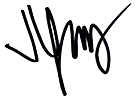You tried your best, Rolfe. You really did. But despite your best efforts, Labor Day isn’t the movie that Jason Reitman aspired to make. No, it’s something else. Sure, you brought a little style—but style, in this case, couldn’t overcome the substance. It rarely does when the substance is this ludicrous.
You know, there was a time way back in the golden age of cinema (the 1980s), when adult melodramas like this were prestige pictures (Rain Man, to which this flick owes an interesting musical debt, was the highest grossing movie of 1988). On paper, Labor Day aspires to that sort of mainstream appeal. Reitman has assembled all the vital pieces: a screenplay based on the novel by Joyce Maynard; a sprawling, eclectic cast that includes everyone from Oscar perennial Kate Winslet to People’s Choice Award occasional James Van Der Beek; a cinematographer, Eric Steelberg, whose floating camera is always panning and finding focus and framing things in interesting ways. And you, Rolfe: the award-winning composer who, in my opinion, wrote one of the great underappreciated scores of the last decade, Sideways.
You’ve been working with Jason for a long time – you scored his first film (Thank You For Smoking), his most acclaimed film (Up In The Air), and his best film (Young Adult) – but never before have you had to strain this hard to keep things together. Despite all that elaborate camerawork, despite all the capital-S smoldering that the actors do (particularly Josh Brolin, as the smoldering escaped convict whose full name, in the screenplay, was probably Frank Smolder), the story that it serves is such a syrupy-sweet, predictable domestic melodrama that, built with all this fine craftsmanship, it feels almost like a parody of itself.
So you do your best to counteract it, Rolfe. You lay an ominous synthesizer drone beneath all these sun-drenched scenes of quaint small town life back in the halcyon days of 1987. When Brolin first meets Winslet and her young son at a department store and intimidates his way into the backseat of their car, you knit the entire sequence together with a throbbing, unceasing march that feels reminiscent of the way that Michael Penn and Jonny Greenwood have scored scenes in Paul Thomas Anderson films. You attempt to dilute the histrionics, to bring the mood of the film back down to earth with a few tricks of the trade. And you almost manage it. But the wheels and gears of the plot ultimately let you down. How can so much coincidence and happenstance and convenient circumstance be required to bring the characters to a climax that was obvious from the start?
One can’t help but think that with all the talent assembled to make this movie, something slightly more refined and substantial could have resulted. But, unfortunately, a moody score can’t turn a phony Hollywood flick into an art film.
Sincerely,

Jared







